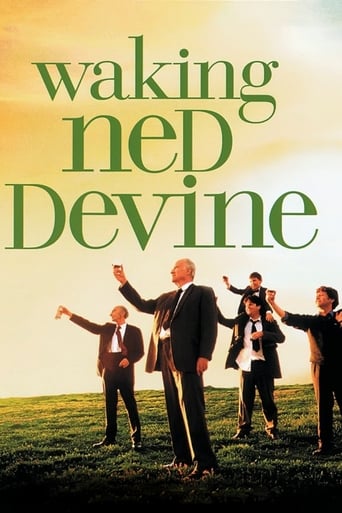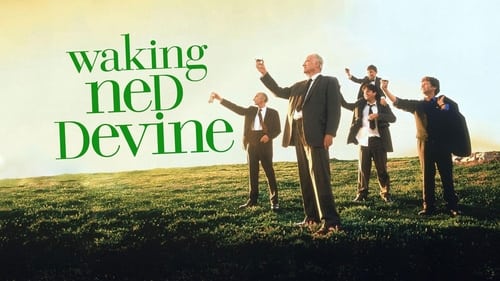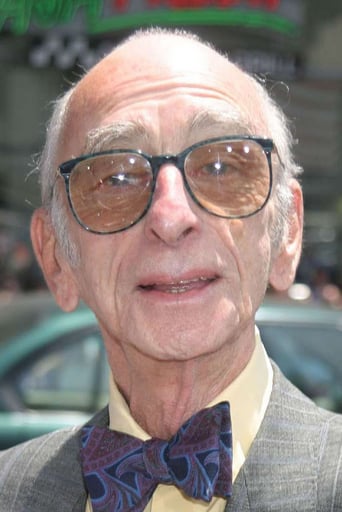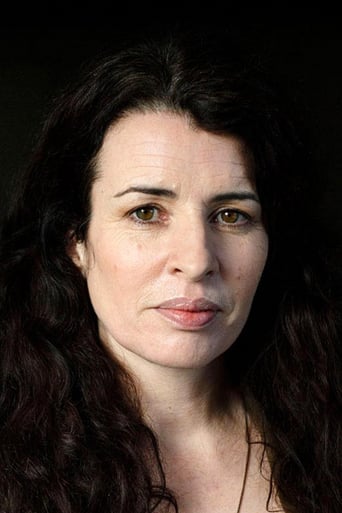Athena-Press
Fifteen minutes after attempting to log-in to my account, suffering through verification hoops and security stuff at IMDb (perhaps I am plotting some hacking scam, right?) I still want to write this short note. I surprised myself with the interest in endorsing this movie. "Waking Ned Devine" is a few years old but I watched it last night for the first time. How refreshing to find this gem. I believe this is what film is about, at least in my dying generation. A story well told, a craft mastered by the filmmaker, excellent, credible actors and a touch, just a touch of fantasy, enough to believe that life can and will turn everything around for the best, for everyone who has love in their heart (the only unanswered question would be if the lottery rep lived or died, did he die?) I demand more movies like this, and they are not only for us in our fifties and up, look at La-la whatever. We are all getting sick of special-effects-based movies. Come on Kirk, throw us another one.
Hannah Long
Ireland, as a subject in fiction, lies in the curious hinterlands between fantasy and reality. While the gritty, ugly violence in the North remains a present memory, Éire cannot quite shake off her aura of romance.Waking Ned Devine embraces the magic side of Ireland, perhaps to too great an extent, forgetting to ground itself in a harsher reality. Yet even in its absurdest moments, the talent and charm of the cast anchor the story, lending just a touch of gravitas to what is ultimately the tale of leprechauns stealing gold.Our chief leprechaun is the irrepressible Jackie O'Shea, played with panache and roguish delight by Ian Bannen. His best friend, and every bit his equal, is lanky, timid Michael O'Sullivan (the great David Kelly). They live in Tullymore (Tulaigh Mhór), an idyllic coastal village with 52 inhabitants. When Jackie and Michael deduce that a local has won the lottery, they concoct a string of harebrained devices to identify and ingratiate themselves to the "lucky sod." It takes a while to discover that he is, in fact, elderly fisherman Ned Devine, who promptly after realizing his win, died from the shock of it.Jackie and Annie, his rosy-cheeked wife (Fionnula Flanagan), sit quietly in their kitchen and share solemn, small-town generalities about Ned's decency and kindness. It is, of course, a tragedy to die in the face of such a pot of gold; it's worse than ordinary death. Going to bed, they say a simple, rehearsed prayer for the soul of Ned Devine, and go to sleep.In a rather vague dream, Jackie becomes convinced Ned intends him to claim the money. It's such an absurd proposition, such an obvious self- deception, that we laugh along with Jackie, recognizing our own tendencies to lie to ourselves. If the story had tried to justify events following in any sort of believable fashion, I would have instantly lost sympathy with our errant leprechauns, but as it is, we are still in the realm of fantasy. And, as Roger Ebert observed: "Stealing 6.8 million pounds from the lottery is, of course, not too wicked."So Jackie and Michael set to work, cleaning up the corpse and searching Ned's documents (we're starting to realize this is rather a black comedy). The next morning, they call and make the claim, much to Annie's dismay. There is now no turning back, and with the unexpectedly early arrival of the lotto man, things are off to a break-neck pace. The plot quickly spins into a complex rivalry of cleverness versus an increasingly impossible task. Refusing to resort to quick fixes (except in one sublimely evil deus ex machina), writer/director Kirk Jones seems to delight in throwing up ever higher obstacles for our heroes.In the interim, time rolls on, as we come to know each of the eccentric citizens of Tullymore. Lizzy Quinn, the village witch, rouses everyone's hatred with her mean-hearted greed. Mrs. Kennedy at the Post Office is happily expecting a new grandchild. Giggly old lady Kitty is determined to trap bachelor Michael. An intelligent, precocious child bonds with the insecure, but kind, temporary priest of Tullymore's only church. The local pig farmer (James Nesbitt, of Hobbit fame) romances a darkly beautiful single mother (Susan Lynch, The Secret of Roan Inish), who rejects him on the basis of the smell of pig (another example of how lightly the film takes real relationships.) It takes full advantage of the unearthly beauty of the Isle of Man, soaring green cliffs and rocky shores, misty hollows and vast oceans, haunted by the wail of bagpipes, the beat of bodhran, and the swift thrill of a fiddle. Catholicism forms a stately (if passive) backdrop to the quaint village, and Lux Aeterna is worked into the soundtrack beautifully. Unlike many films, it is often content to let the camera rest on the gentle shadows, to let the seconds tick by as an old man sleeps. There is a beauty, an idyllic goodness to it all that guides me into Faerie.Despite its full acceptance of rather shady moral actions, the film is ultimately about generosity, a spirit of community, and the laughter of friends. Also crime. It has just enough magic to convince us that's a worthy cause. Originally posted at: http://www.longview95.blogspot.com/2014/07/waking- ned-devine-movie-review.html







